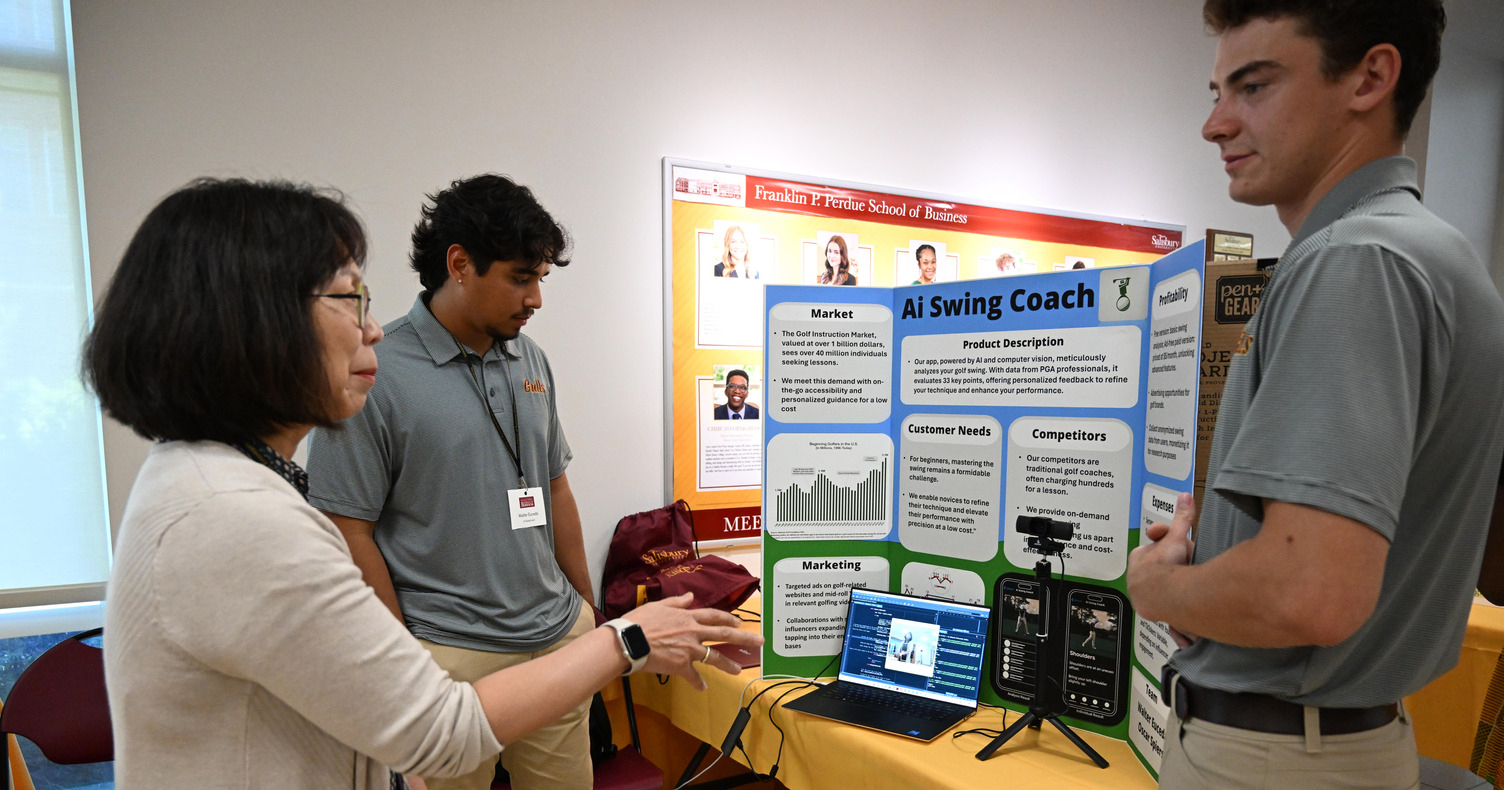NSF Awards SU $380K for Rural AI Solutions and Engagement Project
SU Public Relations
SALISBURY, MD---The National Science Foundation (NSF) is helping Salisbury University use artificial intelligence (AI) solutions to solve problems for local agency, business and non-profit partners.
Dr. Clifton Griffin, dean of graduate studies and research; Dr. Xiaohong “Sophie” Wang, chair of SU’s Computer Science Department; and Michael Jensen, executive director of entrepreneurship, received a three-year, $380,000 NSF grant to lead the project “Rural AI Solutions and Engagement (RAISE).”
The award is in conjunction with the NSF’s “Enabling Partnerships to Increase Innovation Capacity” (EPIIC) program.
SU’s project is part of a larger cohort of universities that include Valdosta State University and the University of Alaska – Anchorage. The universities represent institutions in rural areas that have demonstrated strength in the use of AI technologies and seek to build connections with local partners to help solve problems.
“The idea of ‘artificial intelligence’ tends to conjure up all sorts of suspenseful, and sometimes concerning, thoughts,” said Griffin. “We hope to demystify and ‘deglorify’ AI and re-imagine it as a set of powerful tools that SU faculty can develop to help solve problems for local partners.”
SU’s Computer Science Department, in the Richard A. Henson School of Science and Technology, and Dave and Patsy Rommel Center for Entrepreneurship, in the Franklin P. Perdue School of Business, will play roles in AI readiness reviews, AI research capacity and partnership building, external partnerships, rural workforce development, and collaborative networking in research development.
“The Perdue School is an established community resource for local businesses and organizations through entrepreneurial mentorship, economic outreach and a connected network of experts in business operations,” said Dr. Christy Weer, dean of the Perdue School. “This grant enhances SU’s outreach efforts across disciplines to meet the growing technological and networking needs of our partners.”
“The RAISE project is designed to help our local economy remain competitive in the face of a rapidly changing technological landscape,” said Jensen. “AI has the potential to transform how we work similar to the changes we experienced with the adoption of the internet, but, potentially, at a much more aggressive pace. We want to help companies and organizations in our region keep ahead of those changes.”
SU also will focus on “coming together” through AI workshops aimed at revitalizing local industries, “staying together” through sustained collaboration and trust-building in regular stakeholder meetings, and “growing together” by aligning technological innovations with strategic business developments.
“While the computer science faculty and students have a long history of working with local businesses to develop innovative solutions to thorny computational problems, this new funding and partnership with the Rommel Center will accelerate and expand that reach, further cementing SU’s role as a ‘force multiplier’ for the regional business community,” said Dr. Michael Scott, dean of the Henson School.
“Latest AI development and applications are transforming many industries and changing the world,” said Wang. “Our rural communities on the Delmarva Peninsula should not be left behind in this technology revolution. Through participating in the NSF EPIIC program, SU can bolster its AI research and education capability, train a skilled workforce, and hence, promote regional economic prosperity for this region.”
The RAISE project contributes to intellectual merit by enabling non-R1/R2 institutions in rural and semi-rural areas to develop essential capacities in partnership building, research administration, research development and research leadership.
Using these capacities, the project institutions, often central to innovation in their regions, should be able to integrate AI within multidisciplinary frameworks to advance practical solutions in various fields such as agriculture, energy, education and health care. This integration directly addresses local needs, improving community services and industries.
Learn more about SU and opportunities to Make Tomorrow Yours at the SU website.

